|
Today's review is brought to us by Erin Palmer, who you may know as the sole member of both raw black metal outfit Dread Maw and black metal/black n' roll entity Rage of Devils. This is Erin's second guest post here at the Village--a fact for which we are eternally grateful. Enjoy! - Ed.
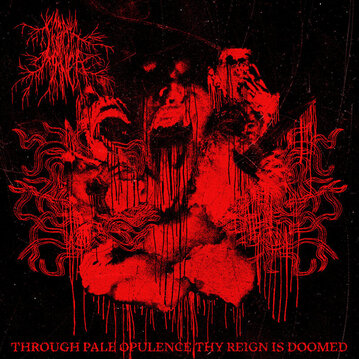
Guest post written by: Erin Palmer
As I've mentioned before, my favorite bands are the ones that make music where I can't quite conceive of actual people creating it. The best metal, to me, is inhuman, music that seems like a force of nature rather than something played with instruments. Enter Febris Manea. Febris Manea are a raw black metal band from the United States, originally based in California but now residing in Salt Lake City. The artist, known only as D.O., stated in an interview that the project was created to express feelings he couldn't otherwise “without serious social or legal repercussions,” and...yeah, that checks out. This is not black metal for the uninitiated. This is the pure, uncut form of the genre. Their most recent release, Through Pale Opulence Thy Reign is Doomed, begins with an ominous, horror movie-style intro, and then immediately strikes the listener in the face with a howling, swirling wall of guitars and unhinged screams. Throughout the album, the soundscape D.O. creates with his music is so rough and nasty as to almost verge on harsh noise at points. Everything blends together in a riptide of deranged sound that constantly washes over you, threatening to pull you under.
0 Comments
Huge thanks to today's guest reviewer for the words! John Angel typically writes over at (the venerable) Noob Heavy, and can be found on twitter as well. Follow accordingly, dear readers! - Ed.
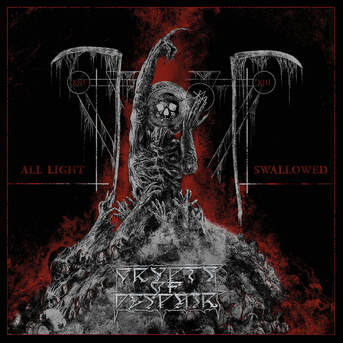
Guest post written by: John Angel
If you’ve read my previous reviews (hey mom) you might know that I lean towards the modern side of the old-school/modern divide of the current death metal scene. I like the crisp production and blending of a wider variety of genres that seems to be de jure in modern death metal. But there are OSDM records that catch my attention. It’s hard for me to put my finger on exactly what draws me to said ear-catching OSDM albums but I think it's having a little more aggressive riffing, production that keeps that lo-fi and cavernous vibe so many like about OSDM, but also allows the music to be legible to the listener. Today I’ve got a review for one such record, All Light Swallowed by Crypts of Despair.
Special thanks to Carcassbomb (of ye olde Noob Heavy and Black Lodge PR) for the words! If you're looking for top-notch music writing, I highly recommend adding Noob Heavy to your blog rotation. You should also check out Black Lodge PR if you need, well, PR (the sheer quality of which I'll happily vouch for!) - Ed.
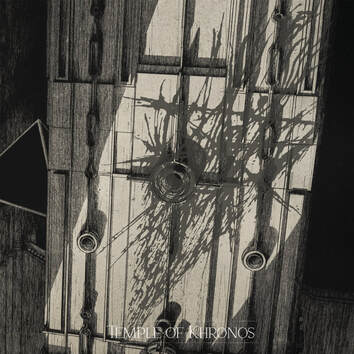
Guest post written by: Carcassbomb
Australia has been coming in strong lately with bands under the genre tag “dark metal,” which is well suited here with a sound that is difficult to nail down, it takes a bit of everything with the emphasis on darkness. Be that a brooding kind of darkness or menacing darkness depends on the album, but with Spire there’s a perfect balance of both. This is my introduction to the band and it left quite the impression! A pleasurable barrage of doomy genre-hopping can be found on Temple of Khronos. They have a powerful way of building up to really epic moments that come with a lot of added flourish. There’s a great black metal influence with shrieking that reminds me of Silencer as well as growls on the doom end of the death spectrum--both of which blend in well with the clean variations of singing and BIG HUMMMMS. There’s a lot of thickness to the overall production, utilizing vocal modulation and repetition to great effect. The density could be compared to fellow Australian’s Portal or more recent, The Amenta, and the BIG HUMMMMS might sound freshly familiar to those who dug into that Sutrah EP last year. In the rush to cover the constant waves of new music, we all too often neglect discussing the releases that leave the most substantial impressions in our lives. As such, we recently invited some bands and artists to wax poetic about an album that was deeply impactful or influential to them, either musically or personally. The next guest in line to graciously offer a retrospective in this series is Duncan Evans, who creates dark folk/post-punk under his own name, and apocalyptic noise poetry (which we premiered here!) under the Moonlow moniker. He's a producer, an engineer, a writer at Ghost Cult and Alternative Control, and, lest it be forgot, has a twitter you should probably follow. Beyond these current projects, he was previously the guitarist for Forest Of Stars--so, all told, cred certified many times over, amiright? Without further ado: enjoy this retrospective!  Written by: Duncan Evans This album was my first proper introduction to Nick Cave. It remains an incredibly important piece in the jigsaw of my own development as an artist and as a human being. I also believe it is significant in a wider cultural sense. Around the mid-2000s, Nick Cave had seemingly grown tired of producing records with the expanded 8-piece lineup of The Bad Seeds: “It felt like every time I took a song into the Bad Seeds, everyone piled in on it. In the Bad Seeds, you play a song, and everyone's grabbing a fuckin' maraca, y'know?" In response, Cave and three Bad Seeds members (Warren Ellis, Martin P. Casey, Jim Sclavunos) formed Grinderman. At the same time, I was growing weary of the virtuoso prog rock I had been listening to. I had listened to a few of Cave’s songs and I had meant to properly explore his work for a while. I remember reading about Grinderman in the music press just before its release, and I thought this was probably as good a place as any to start. I ordered a copy and, strangely, two of them landed on the doormat a week later. Hearing this record on its release in 2007 was something of a Damascene moment for me. It opened up doors which remain unclosed. What follows is an explanation of how this album impacted me so deeply, and why I think it matters in wider terms. In the rush to cover the constant waves of new music, we all too often neglect discussing the releases that leave the most substantial impressions in our lives. As such, we recently invited some bands and artists to wax poetic about an album that was deeply impactful or influential to them, either musically or personally. The next guest in line to graciously offer a retrospective in this series is SW, the sole bleep and blooper of black metal inspired chiptune act Lunar Cult, whose work can be found lurking over at bandcamp. I don't listen to much chiptune, but when I do, it's invariably the nuanced and intriguing work of Lunar Cult. Needless to say: when yer done here, check it out! 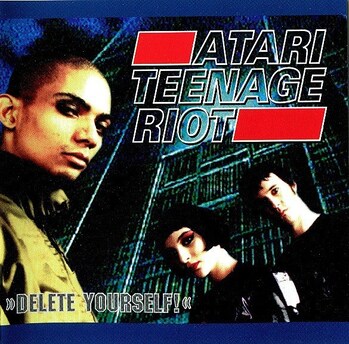 Written by: SW It’s a cliché that our teenage years are a period of rapid development, and something we can take for granted; and sometimes, it’s only in hindsight that we can appreciate how much we changed in a short space of time. This is certainly the case for my own journey as a music fan. At 15, my favourite bands were the likes of Ash and Green Day--radio-friendly rock with a hint of transgression. Yet by the time I was 16, I’d gone through a period of massive growth aided by Napster, jumping from Green Day to Korn to Slipknot to Marilyn Manson to Nine Inch Nails to Atari Teenage Riot in a matter of months. Whilst Nine Inch Nails are undoubtedly one of my favourite bands, and changed my relationship with music profoundly, it’s Atari Teenage Riot’s first album, Delete Yourself!, that I think may have had the biggest overall impact on me.
In the rush to cover the constant waves of new music, we all too often neglect discussing the releases that leave the most substantial impressions in our lives. As such, we recently invited some bands and artists to wax poetic about an album that was deeply impactful or influential to them, either musically or personally. The next guest in line to graciously offer a retrospective in this series is one Erin Palmer, sole member of raw black metal outfit Dread Maw, as well as raw black metal/black n' roll entity Rage of Devils. Once yer done reading this retrospective, check out both projects!
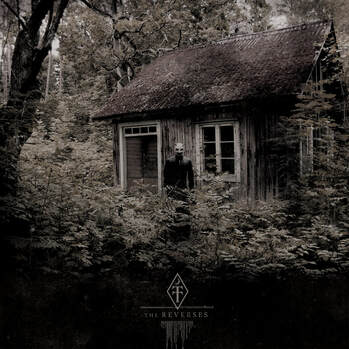
Written by: Erin Palmer
I went through several years where, for multiple reasons, I wasn't enjoying metal. One of the hallmarks of OCD is intrusive thoughts. Irrational thoughts that come into your head out of nowhere, but feel so gut-wrenchingly real that you can't help but give them credence. Mine started in 2011, and they told me that I wasn't “allowed” to like metal. Simply saying that doesn't convey the fear that came with those thoughts. It was a sick feeling in my stomach that I was doing something wrong by listening to metal. It wasn't based in anything real; no religious background was responsible, for example. My head just told me that I wasn't allowed to listen to my favorite music, and my insides turned to water. In the rush to cover the constant waves of new music, we all too often neglect discussing the releases that leave the most substantial impressions in our lives. As such, we recently invited some bands and artists to wax poetic about an album that was deeply impactful or influential to them, either musically or personally. The next guest in line to graciously offer a retrospective in this series is politically inclined industrial artist Atrop0ss, whose work can be found in the wildlands of bandcamp. In a strange twist of fate, this is the third(!) NIN album to have been featured in this series--clearly indicating a broad reach of influence. Once yer done here, check out these retrospectives of The Downward Spiral and The Fragile! But, without further ado: 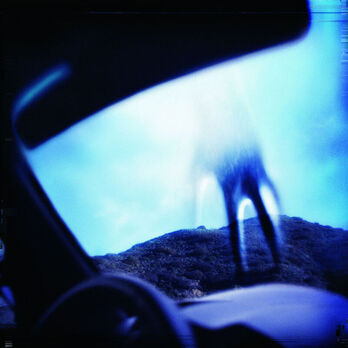 Written by: Atrop0ss 2020 has been a culmination of centuries of corruption, racism, and propaganda, all burgeoning into a multi-faced demon threatening utter demise. Americans especially are faced with a year that seems to bring a new tragedy or intense "happens once a century" type of event every month, and have reacted in all manner of negative ways. Trauma seems to be a consistent response. And in times of trauma and hardships, we as a species often turn to music: for answers, for peace, to feeling justified, to feel heard. Musicians in these situations will often write music in order to explain a point, or make known their views. In my (relatively short) time on this earth, I've only found one album that really, honestly, predicted exactly where all this corruption and evil would bring us. That album is Year Zero by Nine Inch Nails.
In the rush to cover the constant waves of new music, we all too often neglect discussing the releases that leave the most substantial impressions in our lives. As such, we recently invited some bands and artists to wax poetic about an album that was deeply impactful or influential to them, either musically or personally. The next guest in line to graciously offer a retrospective in this series is Llaves of thrashy blackened outfit Witchurn (a band which we incidentally A. love and B. wrote about here!) Read on:
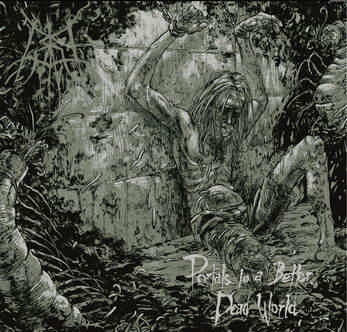
Written by Llaves:
Back in 2016 I was perusing the vinyl collection at Earwax Records, a record store in Madison, WI dedicated to metal and punk (which has sadly closed its doors). I had been through a few independent record stores with a few token thrash or NWOBHM releases, but this place had all kinds of stuff I’d never heard of. Flipping through some of the black metal collection I found Portals to a Better, Dead World by Cara Neir. I’d heard the band name before but had never actually sought them out. The cover alone sold me, a grim portrait of a decaying man chained to a wall. Weirdly perfect for my first winters in the Midwest, cold, isolated, frightening. It felt right. I put the needle down and 40 minutes later came out of a fugue state. Let The Waves Have Their Way - On Interpol And Black Metal (A Retrospective by Sarah Allen Reed)6/25/2020 In the rush to cover the constant waves of new music, we all too often neglect discussing the releases that leave the most substantial impressions in our lives. As such, we recently invited some bands and artists to wax poetic about a band or album that was deeply impactful or influential to them, either musically or personally. The fifth in our series of guest reviews is brought to us by the multi-talented Sarah Allen Reed of (I quote) "Ophelia Drowning, Coma Roulette, The Forest At Night, and way too many other things to keep track of!" Sarah's assorted projects can be found at her official site. As ye will inevitably and quickly discover, this particular retrospective marks the Sleeping Village's first non-text article! Needless to say, we were very excited to see that Sarah's retrospective would address notions of personal musical impact in a new and novel fashion--namely, a gorgeous autobiographical comic. Today, Sarah discusses in visual form the influence of Our Love to Admire by indie-rock/post-punk heavyweights Interpol. Without further ado: please enjoy! In the rush to cover the constant waves of new music, we all too often neglect discussing the releases that leave the most substantial impressions in our lives. As such, we recently invited some bands and artists to wax poetic about an album that was deeply impactful or influential to them, either musically or personally. The fourth in this (increasingly popular, apparently!) series of guest reviews is Forest Bohrer of Adzes--who, incidentally, just put out a very good album that you can read about here. Read on! Written by: Forest Bohrer Time brings them all home To the eye of every storm 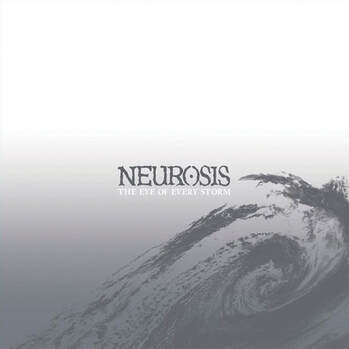 Upon the landscape of heavy music, Neurosis looms. The Oakland-based collective has produced a slew of landmark records through the decades, influencing multiple generations of musicians and spawning entire genres of like-minded bands. Their most well-known record is the apocalyptic machine that is Through Silver In Blood, a sprawling seventy minutes of oppressive darkness. And yet, when I think of Neurosis records that had the profoundest influence on my life, 2004’s The Eye of Every Storm is the record I return to. At the turn of the 21st century, the band had just delivered Times of Grace, a masterpiece perhaps even surpassing Through Silver In Blood in emotional weight and crushing sludge. And rather trying to reach the great heights of Times, or the depths of companion EP Sovereign, the band turned to a more contemplative, organic approach. A Sun That Never Sets and its successor The Eye of Every Storm featured gravelly singing, acoustic guitars, cellos, complex harmonies, and matured songwriting, but are no less weighty than other Neurosis albums for that. |
Welcome!
We provide thoughtful reviews of music that is heavy, gloomy...and loud enough to wake us from slumber. Written by a highfalutin peasantry!
|
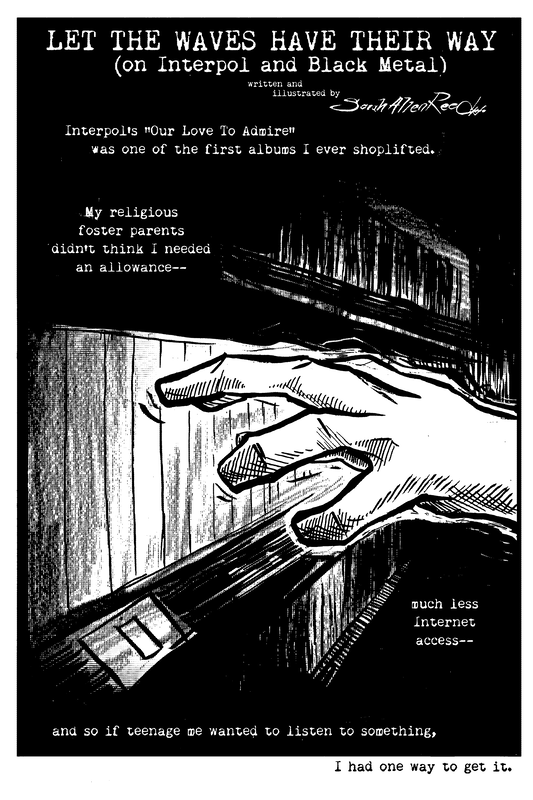
 RSS Feed
RSS Feed